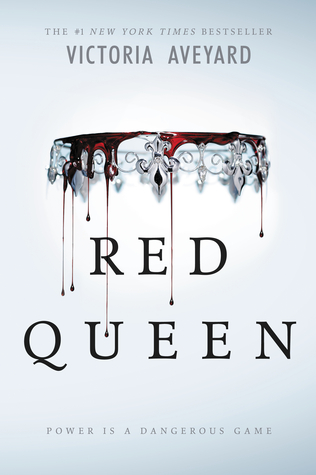I briefly weighed in on a discussion of the “show don’t tell” rule on LibraryThing recently and I want to expand on my point.
The benefits of the “show don’t tell” rule are clearly seen for characterization. You don’t say, “Bob was insane and evil.” Rather, you show the reader Bob going around trying to get his co-workers fired if they wear belts that don’t match their shoes, or whatever. That way the reader hasn’t just been told a rumor about Bob, as it were; the reader sees Bob’s behavior and draws his/her own conclusions.
Even here, though, this is just a rule of thumb, not a law of physics. There actually are contexts where you should say “Bob was insane and evil,” e.g., you’re at a moment where it helps the reader to be told that, but you can’t afford to slow the pacing with details (and Bob is offstage), etc. Note if that character appears later, you should follow up and show detail supporting the original “told” part.
The “tell” as such isn’t necessarily bad technique; rather, the “tell” without the supporting “showing” of the particulars (at least eventually) is bad technique.
However, if your specific instance is very clear, you can eliminate the tell part entirely. E.g., if Bob tries to get his clothing-mismatched colleagues fired, we don’t need to be told that he’s evil. But even with a more subtle character who’s torn in conflicting directions about something, you generally don’t need to say “he felt conflicted.” Take a man who wants to be both an actor and a rock star. If you clearly show him wrestling with this, you simply don’t need to say “he was wrestling with (etc.)” Indeed, it would be ridiculous to bother including it.
In physical description, e.g., of a person, a little tell mixed in with a lot of show can go a long way. Examples below.
Ayn Rand understood all this: The author provides both abstract summaries/evaluations of the sense of an event (or description, e.g., of a person or scene), and also the supporting particulars that justify the abstract evaluation.
Let me offer an example:
She was very ugly. Her eyes were so pale they seemed colorless. Her mouth was soft, puffy and more or less formless; it suggested weakness, as though unwilling to commit to any particular shape. Her hair was a nondescript light brown, the color of dishwater.
The particulars (the details of the face) “prove” the evaluation (she was ugly), and the evaluation gives meaning to the particulars; it unifies, explains them, and tells the reader why the author chose to include those details.
The particulars support the generality; the generality gives meaning and purpose to the particulars.
Such is the writer’s power over the facts presented, and the evaluation attached to them, that a few small changes in what is expressed and how it is expressed can support an entirely different judgment. For example:
She was very beautiful. Her eyes were pale; they seemed ethereal, angelic. Her mouth was soft, suggesting it was waiting to yield to a man’s kiss. Her hair, a muted sienna, allowed her face to hold all of one’s attention. The overall effect was strikingly sensual.
Notice the “objective facts” about the woman’s appearance are almost exactly the same in these two passages. Changes that are seemingly “only” a matter of nuance make them very different in terms of the overall impression. But it is not only a difference of “marketing”; I also did some fine brushwork with the objective details. For example, in the first passage her mouth is shapeless. In the second passage, it isn’t; it is soft, as if she has an inner eroticism that is, consciously or unconsciously, making her hold her lips (an important erogenous zone) in a sexual way. In other words, in the second passage there is a suggestion of intent in the shape of the girl’s mouth that is not there in the first passage. In the first passage, she’s simply a brain-dead idiot with a flabby mouth. In the second, the suggestion of purpose actually conveys the opposite impression: life, vitality, sexual energy.
This is what you can do when you think about what you’re doing.
By the way, the foregoing examples illustrate the fact that Art (yes, I capitalized Art) is largely a left-brain activity. You have to be consciously aware of what you’re doing. (I am going to write an essay on this at some point in the future, but it will be longer than a blog post.) Rand: “A beard and a vacant stare are not the defining characteristics of an artist.” (Heh.) While instinct certainly has its place in Art, to use it in a good way, you must know what you’re doing. If you’re an aspiring artist and someone tells you that you should usually go by your inscrutable instinct, run away from that person as fast as you can. Whether they know it or not, their advice will screw up your ability to create.
Above I said, “Note if that character appears later, you should follow up and show detail supporting the original ‘told’ part.” Indeed, setting the stage with a little bit of tell can leverage the show later. E.g., if it’s a fantasy novel and a character off stage has been set up as a Witch Queen who is responsible for maintaining sexual desire in the world, then when you finally show her to the reader, the show parts will have more impact. From one of the last chapters in my novel The War of the First Day:
We all turned. A woman sat on one of the rocks. She wore a hunter green silk garment that draped her with careless flair; it flowed around her baring just enough skin to tease the eye without satisfying it. Her crossed legs slanted provocatively from the folds of cloth and she held a pair of green gloves in one hand. She sat still, as if she had frozen immediately after removing the gloves, projecting an air of casual dominance. She had long brown hair, gray eyes, and perfect skin with a hint of an olive tan, and she was beautiful to the point of it seeming rude. Her face, intrusively, seemed to take over the glade because the eye didn’t want to look at anything else. Lesser women—all of us—felt ourselves turning invisible. This was, of course, Aventa Vulpa, the Queen of Lust.
She gave me a smile that would have made a man’s brain drop out through his anus and said, “So you’re the girl who [spoiler elided].”
To summarize, the rule “Show don’t tell” should be thought of as a general rule, a rule of thumb. Here is something much closer to an unbreakable rule, a meta-rule:
For any given rule of writing fiction, you should either:
(1) Follow the rule,
or,
(2) Break the rule for specific reason that you can articulate to yourself. This is basically just saying that you know what you’re doing.
Even this meta-rule isn’t always right, because sometimes you just have to follow your gut.
Like this:
Like Loading...




